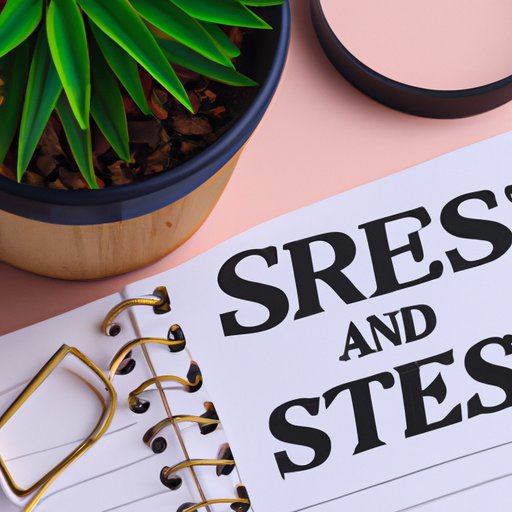
How to Stop a Stress Period: Strategies to Manage Stress Effectively
Stress can be a prevalent issue in our modern-day lives. Whether it is caused by work, relationships, finances, or other factors, prolonged periods of stress can be detrimental to our overall well-being. Common symptoms of stress include difficulty sleeping, headaches, muscle tension, and changes in mood or behavior. If you are experiencing any of these symptoms, it is important to take action to manage your stress. In this article, we will explore practical strategies to help you stop a stress period and manage stress effectively.
Mindfulness Exercises
Mindfulness exercises are a powerful tool for combating stress. Mindfulness is the practice of being present and fully engaged in the current moment, without judgment. Practicing mindfulness can help reduce feelings of anxiety and promote relaxation.
One common mindfulness exercise is meditation. To meditate, find a quiet place and sit comfortably. Close your eyes and focus on your breath. As thoughts enter your mind, acknowledge them but do not dwell on them. Return your focus to your breath. Start with five minutes of meditation each day and gradually increase the time as you get more comfortable.
Deep breathing is also an effective mindfulness exercise. To practice deep breathing, sit or lie down comfortably. Take a deep breath in through your nose, filling your lungs with air. Hold the breath for a few seconds, and then slowly exhale through your mouth. Repeat this exercise several times.
Visualization techniques are another way to practice mindfulness. Imagining yourself in a relaxing environment, such as a beach or forest, can help reduce feelings of stress. Close your eyes and visualize yourself in your chosen environment. Focus on the sights, sounds, and smells around you.
To incorporate mindfulness exercises into your daily routine, try setting aside a few minutes each day to practice. You can also download mindfulness apps or join mindfulness groups to stay motivated.
Physical Activity
Physical activity is another effective way to reduce stress. Exercise releases endorphins, which are natural mood-boosters. Regular exercise also improves overall health, which can reduce the risk of other stress-related health issues.
To incorporate physical activity into your daily routine, find activities that you enjoy. Walking, dancing, and yoga are excellent choices. Start with a few minutes of exercise each day and gradually increase the duration as you get more comfortable.
Low-impact exercises such as yoga and walking are gentle on the body and can be a great way to reduce stress. Yoga classes often incorporate mindfulness exercises, making them an excellent two-for-one option.
Social Support
Seeking social support is an important step in managing stress effectively. Talking through situations with trusted friends or family members can help reduce feelings of anxiety and provide perspective.
To seek social support, consider reaching out to friends or family members who are good listeners. You can also join support groups or find a therapist or counselor to talk to. Sharing your feelings with others can help reduce stress and improve overall well-being.
Time Management
Poor time management can lead to stress. When we feel like there is not enough time to get everything done, we can become overwhelmed and anxious.
To manage time effectively, consider creating a schedule or to-do lists. Prioritize tasks based on their importance and deadlines. Break larger tasks into smaller, manageable tasks. Remember to take breaks and prioritize self-care.
Limiting Caffeine Intake
Caffeine is a stimulant that can increase cortisol levels, exacerbating stress. Reducing caffeine intake or finding alternatives, such as herbal tea or decaf coffee, can help reduce stress levels.
If reducing caffeine intake is not an option, consider reducing overall consumption or consuming caffeine earlier in the day.
Seeking Professional Help
Sometimes, stress can become so severe that it is necessary to seek professional help. Therapy and counseling can provide tools and resources to better manage stress and improve overall well-being.
When seeking professional help, it is important to find the right professional for your needs. Consider factors such as availability, location, and areas of expertise. Most importantly, find a professional that you feel comfortable talking to and is a good listener.
Conclusion
In conclusion, stress can be a challenging issue to manage, but it is possible. By incorporating strategies such as mindfulness exercises, physical activity, seeking social support, managing time effectively, limiting caffeine intake, and seeking professional help, you can stop a stress period and manage stress effectively. Remember to prioritize self-care and take action to improve your overall well-being.





